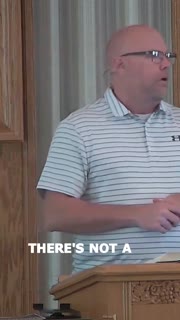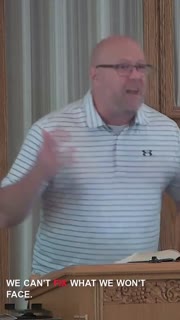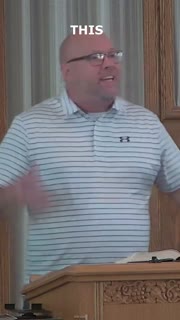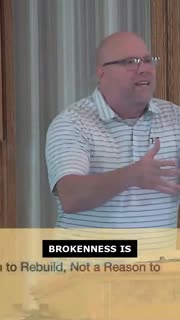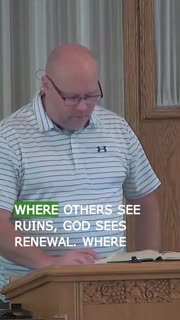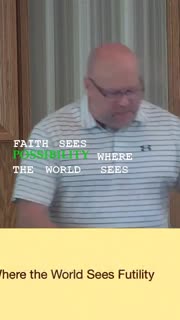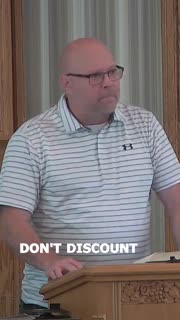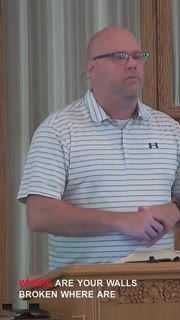Rebuilding Through Brokenness: A Journey of Faith
Devotional
Sermon Summary
Bible Study Guide
Sermon Clips
1. "There's not a one of us. There's not a one of us in this room that has the perfect life. We all have had and do have issues that we struggle and wrestle with. And that's kind of the story of Nehemiah where he sees something that has been broken and needs repair and it breaks his heart. Last week we talked about the idea that we need to have a broken heart for what breaks God's." [33:00] (25 seconds)
2. "We can't fix what we won't face. Nehemiah, he knew about this. He couldn't necessarily do anything. And the people of Jerusalem, they had been living with this for years, these broken down walls. But Nehemiah went out. By night, I went through the valley gate towards the jackal well, the dung gate, examining the walls of Jerusalem, which had been broken down in its gates, which had been destroyed by fire." [38:23] (27 seconds)
3. "We get to this point, this place where we get so comfortable in our brokenness that we don't necessarily see even a need to rebuild. I'm sure at times, the Israelites living in Jerusalem were sitting there thinking, man, I'm kind of scared. At any moment, anyone could come into this city and take us and kill us. But yet, they didn't do anything about it. And when you read this, you think, well, that's dumb. Why didn't you do that? But in reality, we all do this to some extent." [40:00] (31 seconds)
4. "Brokenness is an invitation to rebuild, not a reason to retreat. We need to understand this because when we feel like we're not okay, when we feel broken, we want to pull away from others and the help that actually will help us. Because we're ashamed. It's shame. And shame does not come from God. It comes from the enemy. So when you're feeling shame about your current situation, it is not from God. Conviction is, but conviction moves us to do something." [44:54] (34 seconds)
5. "Where others see ruins, God sees renewal. Where others see defeat, God sees a fresh start. And he sees that in you and me. So you are not, you are not too far gone. None of us are. If you have following the living God through Jesus, you have this power. It doesn't have to be and stay broken. But the blueprint for rebuilding doesn't just happen out of thin air. It begins with prayer, which we talked about last week. It also has planning." [48:39] (43 seconds)
6. "Faith sees possibility where the world sees futility. Faith in what God can do sometimes looks like lunacy to many people. And they will do everything they can to stop you. And this is where we see our last point. That Nehemiah is faced with non-believers. People that are kind of around Israel, but they're not part of Israel. In 1 Corinthians, here's what Paul says to the Corinthian church. The man without the Spirit does not accept the things that come from the Spirit of God, for they are foolishness to him." [53:23] (44 seconds)
7. "Don't discount something that looks like foolishness to the world if it was God calling you to it as long as it's not sin. We need to understand God's blueprint is good. So in our own lives and even in our church lives we need to assess where our brokenness lies. We need to face it with honesty, see opportunities for restoration, and expect the world not to see it when someone from outside of the kingdom of God comes and says that's just kind of what are you trying to do here?" [56:20] (37 seconds)
8. "Where are your walls broken? Where are things in your life that aren't whole? What have you denied or ignored? What are some things in your life that you've just kind of said, you know what, I can't face that right now or I don't want to face that? God's calling you to start the process of rebuilding. Then finally, what's your blueprint? How are you going to make a process to fix what's broken?" [01:04:11] (34 seconds)
Ask a question about this sermon
2. "We can't fix what we won't face. Nehemiah, he knew about this. He couldn't necessarily do anything. And the people of Jerusalem, they had been living with this for years, these broken down walls. But Nehemiah went out. By night, I went through the valley gate towards the jackal well, the dung gate, examining the walls of Jerusalem, which had been broken down in its gates, which had been destroyed by fire." [38:23] (27 seconds)
3. "We get to this point, this place where we get so comfortable in our brokenness that we don't necessarily see even a need to rebuild. I'm sure at times, the Israelites living in Jerusalem were sitting there thinking, man, I'm kind of scared. At any moment, anyone could come into this city and take us and kill us. But yet, they didn't do anything about it. And when you read this, you think, well, that's dumb. Why didn't you do that? But in reality, we all do this to some extent." [40:00] (31 seconds)
4. "Brokenness is an invitation to rebuild, not a reason to retreat. We need to understand this because when we feel like we're not okay, when we feel broken, we want to pull away from others and the help that actually will help us. Because we're ashamed. It's shame. And shame does not come from God. It comes from the enemy. So when you're feeling shame about your current situation, it is not from God. Conviction is, but conviction moves us to do something." [44:54] (34 seconds)
5. "Where others see ruins, God sees renewal. Where others see defeat, God sees a fresh start. And he sees that in you and me. So you are not, you are not too far gone. None of us are. If you have following the living God through Jesus, you have this power. It doesn't have to be and stay broken. But the blueprint for rebuilding doesn't just happen out of thin air. It begins with prayer, which we talked about last week. It also has planning." [48:39] (43 seconds)
6. "Faith sees possibility where the world sees futility. Faith in what God can do sometimes looks like lunacy to many people. And they will do everything they can to stop you. And this is where we see our last point. That Nehemiah is faced with non-believers. People that are kind of around Israel, but they're not part of Israel. In 1 Corinthians, here's what Paul says to the Corinthian church. The man without the Spirit does not accept the things that come from the Spirit of God, for they are foolishness to him." [53:23] (44 seconds)
7. "Don't discount something that looks like foolishness to the world if it was God calling you to it as long as it's not sin. We need to understand God's blueprint is good. So in our own lives and even in our church lives we need to assess where our brokenness lies. We need to face it with honesty, see opportunities for restoration, and expect the world not to see it when someone from outside of the kingdom of God comes and says that's just kind of what are you trying to do here?" [56:20] (37 seconds)
8. "Where are your walls broken? Where are things in your life that aren't whole? What have you denied or ignored? What are some things in your life that you've just kind of said, you know what, I can't face that right now or I don't want to face that? God's calling you to start the process of rebuilding. Then finally, what's your blueprint? How are you going to make a process to fix what's broken?" [01:04:11] (34 seconds)
